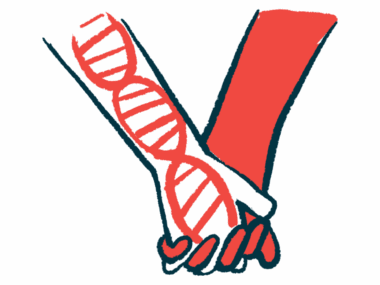Touchless Emerald AI biosensor gets $1.1M funding boost from RSRT
Device uses artificial intelligence to assess symptoms in Rett patients
Written by |

The Rett Syndrome Research Trust (RSRT) has granted $1.1 million to help advance the development of the Emerald biosensor to accurately assess symptoms of Rett syndrome.
This research award will contribute to the development of the biosensor, which uses artificial intelligence to assess irregular breathing, sleep disruptions, and movement in people with the disease.
“We are very excited to advance the Emerald device in this rare disease to facilitate better patient management and support the assessment of therapeutics in development,” Dina Katabi, PhD, president and co-founder of Emerald Innovations, a Massachusetts Institute of Technology (MIT) spinout, said in a press release.
Emerald biosensor can collect data from patients in vicinity of the device
Rett syndrome is almost always caused by mutations in the MECP2 gene, located on the X chromosome. The gene provides instructions to produce the MeCP2 protein that regulates other genes’ activity by switching them on and off, and that plays a critical role in brain development and function.
The disease is characterized by problems in motor, cognitive, sensory, and emotional skills, and affects breathing, sleep, and digestive functions.
The Emerald biosensor is a touchless device that can collect data from patients when they are in the vicinity of the device, distinct from wearable technologies. It monitors very low power radio waves in a room, and uses artificial intelligence to measure body functions affected in Rett syndrome.
The technology allows patients and caregivers to carry on their daily lives while monitoring various symptoms, which will then be used to generate highly specific data sets.
“The breathing and sleep patterns we observed in Rett individuals are quite disrupted, and we are confident that Emerald’s ability to systematically and objectively assess symptoms unobtrusively at home will improve the lives of patients and their families,” said Katabi, who is also professor of engineering and computer science at MIT and director of MIT’s Center for Wireless Networks and Mobile Computing.
Pilot results indicate that the device can effectively detect alterations in sleep patterns and breathing at home over four weeks.
$500K recently donated to study of biosensor
RSRT’s Biomarker Consortium, comprising experts and representatives from biopharmaceutical companies, advised on study design, and will have early access to the data. Alba Tull, a member of RSRT’s board of trustees, and investor and philanthropist, donated $500,000 for this upcoming study to bring the biosensor closer to assessing symptoms in clinical care and evaluating therapies in clinical trials.
“The Emerald provides direct, objective measures of symptoms captured continuously over days, weeks, months, or longer, generating significantly richer data in shorter timeframes than can be obtained in traditional in-clinic studies,” said Jana von Hehn, PhD, RSRT’s chief scientific officer, who will oversee study operations.
“We are excited to continue this important work with Emerald, guided by our Biomarker Consortium and FDA [U.S. Food and Drug Administration] advice, to facilitate more efficient clinical trials and truly effective therapeutics,” she added.
The device is currently being used in drug development for Alzheimer’s disease, Parkinson’s disease, and autoimmune diseases. Recent publications by Katabi’s team demonstrated the potential of the technology to predict the risk of Parkinson’s diagnosis, and to more sensitively define prognosis and medication effects, by detecting breathing patterns and gait speed.






